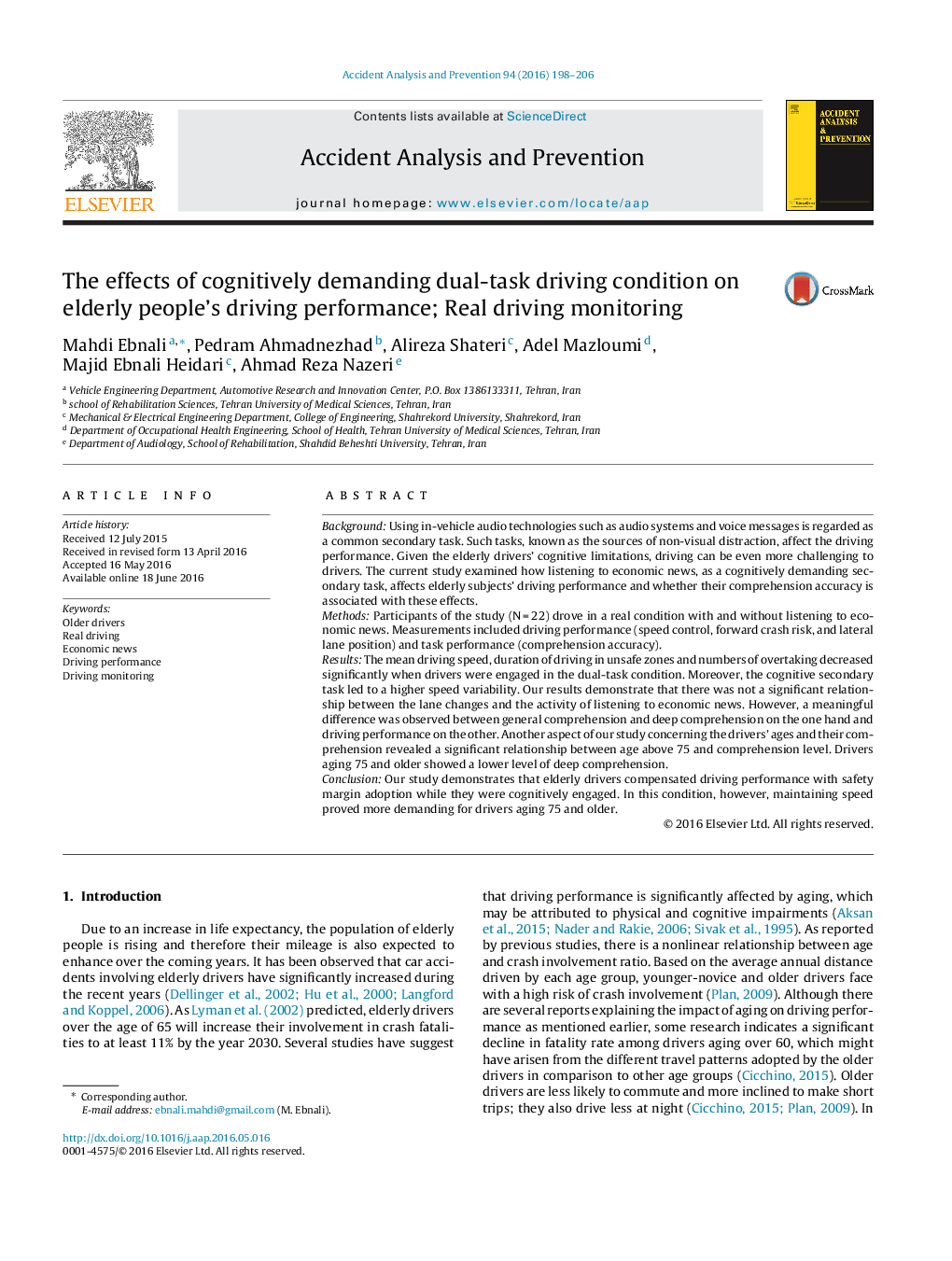| کد مقاله | کد نشریه | سال انتشار | مقاله انگلیسی | نسخه تمام متن |
|---|---|---|---|---|
| 572022 | 1452903 | 2016 | 9 صفحه PDF | دانلود رایگان |
• Mean driving speed decreased and speed variability increased while drivers engaged in the activity of listening to news.
• Compared with the baseline, there was a significant decrease in duration of driving in unsafe-zone and number of ovetakings.
• Age has significant effect on speed variability and deep comprehension among drivers aged ≥75 during the secondary task.
• Comprehension accuracy was not associated with driving performance.
• Driving performance was slightly compensated with safety margin adoption while older drivers were cognitively engaged.
BackgroundUsing in-vehicle audio technologies such as audio systems and voice messages is regarded as a common secondary task. Such tasks, known as the sources of non-visual distraction, affect the driving performance. Given the elderly drivers’ cognitive limitations, driving can be even more challenging to drivers. The current study examined how listening to economic news, as a cognitively demanding secondary task, affects elderly subjects’ driving performance and whether their comprehension accuracy is associated with these effects.MethodsParticipants of the study (N = 22) drove in a real condition with and without listening to economic news. Measurements included driving performance (speed control, forward crash risk, and lateral lane position) and task performance (comprehension accuracy).ResultsThe mean driving speed, duration of driving in unsafe zones and numbers of overtaking decreased significantly when drivers were engaged in the dual-task condition. Moreover, the cognitive secondary task led to a higher speed variability. Our results demonstrate that there was not a significant relationship between the lane changes and the activity of listening to economic news. However, a meaningful difference was observed between general comprehension and deep comprehension on the one hand and driving performance on the other. Another aspect of our study concerning the drivers’ ages and their comprehension revealed a significant relationship between age above 75 and comprehension level. Drivers aging 75 and older showed a lower level of deep comprehension.ConclusionOur study demonstrates that elderly drivers compensated driving performance with safety margin adoption while they were cognitively engaged. In this condition, however, maintaining speed proved more demanding for drivers aging 75 and older.
Journal: Accident Analysis & Prevention - Volume 94, September 2016, Pages 198–206
